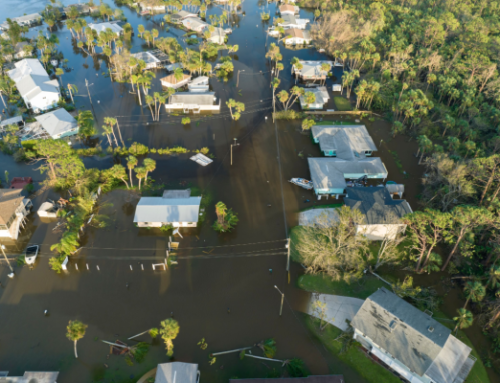This past week, I was reminded of why I find such fulfillment in my work. I had just finished an educational presentation for prospective residents at beautiful Ventana by Buckner, a continuing care retirement community (CCRC) in Dallas, Texas, and was enjoying lunch at a table with four of the attendees.
The two delightful ladies to my left had been neighbors for 35 years and decided to attend the presentation together as they considered their retirement living options. Across the lunch table from me was a man 100-years-young, who still gets up at 4 o’clock in the morning three days a week to run several miles.
The gentleman to my right was a former insurance actuary and member of the LBGTQ community. He told me a fascinating story about how, years earlier, he had befriended African-American concert pianist Armenta (Hummings) Dumisami, now in her mid-eighties, who studied at Juilliard during the height of racial discrimination in the United States. Ms. Dumisami has performed all over the world, including Carnegie Hall, Avery Fisher Hall, and others. (You can check her out on YouTube here.)
It was a wonderful group of people that I had the pleasure of meeting during that luncheon at Ventana. How many people are fortunate enough to come home from a day’s work having enjoyed an experience like that?
Uncertainty about “what’s next”
One of the ladies at my table — let’s call her Linda — who I’m guessing is in her late seventies, described how my presentation helped her think about so many important things she had not previously considered regarding her life, both today and in the future. Linda teared up as she thanked me for helping her consider what is most important to her and what peace of mind represents at this stage of her life.
While I am always hopeful that my presentations will help the audience walk away better prepared to plan their retirement living future, perhaps I don’t always consider what an emotional experience it can be for some. After talking for a few minutes, Linda said to me: “In my twenties, I knew what I wanted to do in life. In my forties, I knew what I wanted to do in life. But now, it’s not so clear.”
It seemed that, all of a sudden, Linda had been confronted with the new thought that just because you are in a later stage of life doesn’t mean you shouldn’t have a vision of what purpose and fulfillment means to you. Yet, at the same time, she didn’t know where to start. “How do I go about figuring out what I want to do now?” Linda asked. I have to admit that, in that moment, I didn’t have the perfect answer for her.
>> Related: The Number 1 Deciding Factor When Choosing a CCRC
The struggle to rediscover purpose
There are, no doubt, many paths to happiness and fulfillment as we grow older. Yet the conversation I had with Linda that day got me thinking more about the near-limitless possibilities when it comes to rediscovering one’s purpose during the retirement years. Finding that purpose — the motivating factor that makes you excited to start each new day — is actually a common challenge among retirees.
For those seniors who are considering a CCRC, they’ve likely already been retired for many years. Now, however, they are in the stage of retirement where they begin to be confronted with “what ifs” related to aging. They may be trying to figure out how to maintain wellness and purpose as they or a partner start to experience some age-related issues — health, mobility, etc.
In a recent article, psychotherapist Dr. Katherine Esty asks, “What is essential for a good life for those of us who are over 70?” To answer that question, she draws on the writings of German philosopher Immanuel Kant, who famously wrote that, to be happy, it is essential to have:
- Something to do: Esty notes that “those of us over 70 who are thriving are active.” Whether your passion is volunteering, crafting, taking continuing education classes, golf, or some other hobby or pastime, she says that “activities that engage us fully and give pleasure are the ones that are essential to our well-being.”
- Someone to love: “As we age, as well, we come to understand better that connecting with the people we love is absolutely necessary,” says Dr. Esty. Whether it is the family you are related to or the family you have chosen, interpersonal relationships sustain us, especially later in life. Sadly, we saw the impact social isolation had on so many people during the pandemic.
- Something to hope for: “Older people who flourish have a wide range of purposes and things to hope for that give meaning to their lives,” Dr. Esty observes. “Meaning and purpose come from caring about something beyond ourselves.” This could be a social cause, family, spirituality — whatever energizes you.
>> Related: Heart and Soul: Retirees Find New Meaning Through Volunteering
CCRCs nurture a sense of purpose
In talking with my luncheon companion Linda, I believe she gave voice to what so many retirees are feeling about their quest to find purpose in their mid- to late-retirement years. But I also know that, by taking the proactive step to explore her senior living options, Linda is already on the right track to finding the answer.
CCRCs and other retirement communities offer their residents a host of programs and activities — from exercise classes to volunteer programs to social and educational opportunities. Of course, these activities are all optional, but most residents find that handful of specific programs that they truly enjoy and look forward to participating in. I also frequently hear stories from residents about how, thanks to the programs at their CCRC, they have rediscovered a passion that had been put on the backburner for many years — a hobby, sport, craft, or other activity.
Whether Linda ultimately decides to move to Ventana, some other senior living community, or even remain in her existing home, I’m confident that she too will uncover that driving force of purpose as she writes this next chapter of her life.

FREE Detailed Profile Reports on CCRCs/Life Plan Communities
Search Communities






